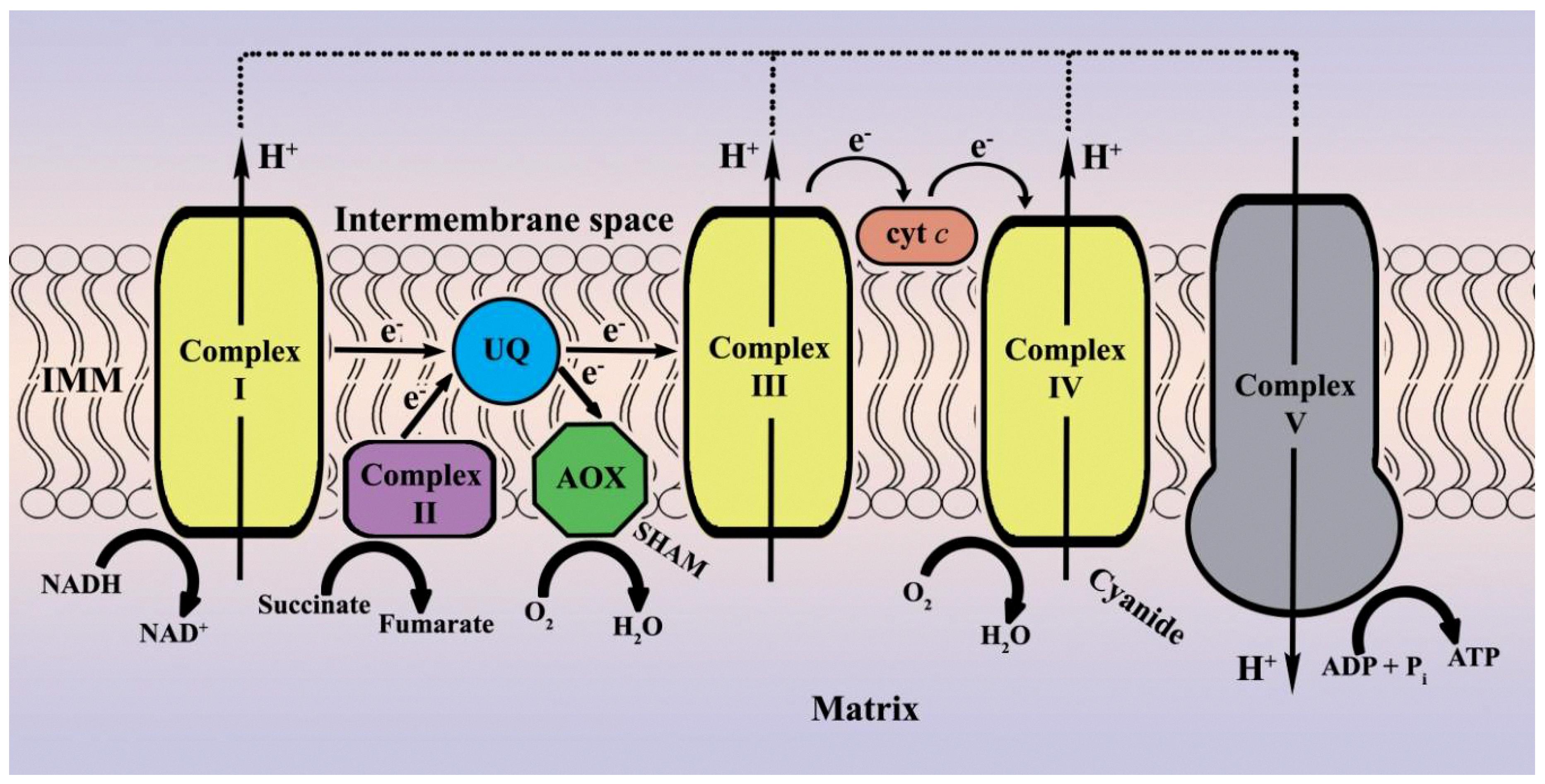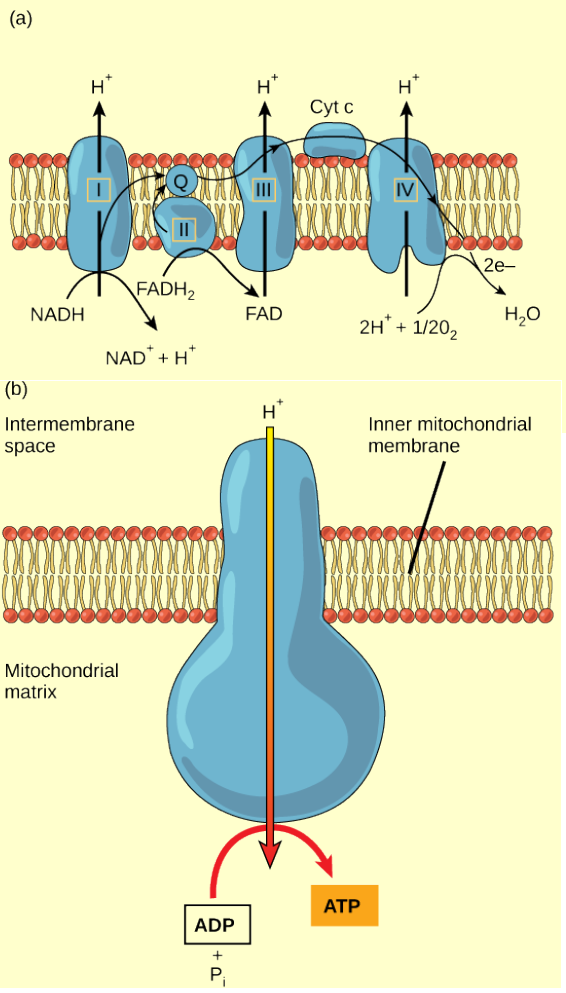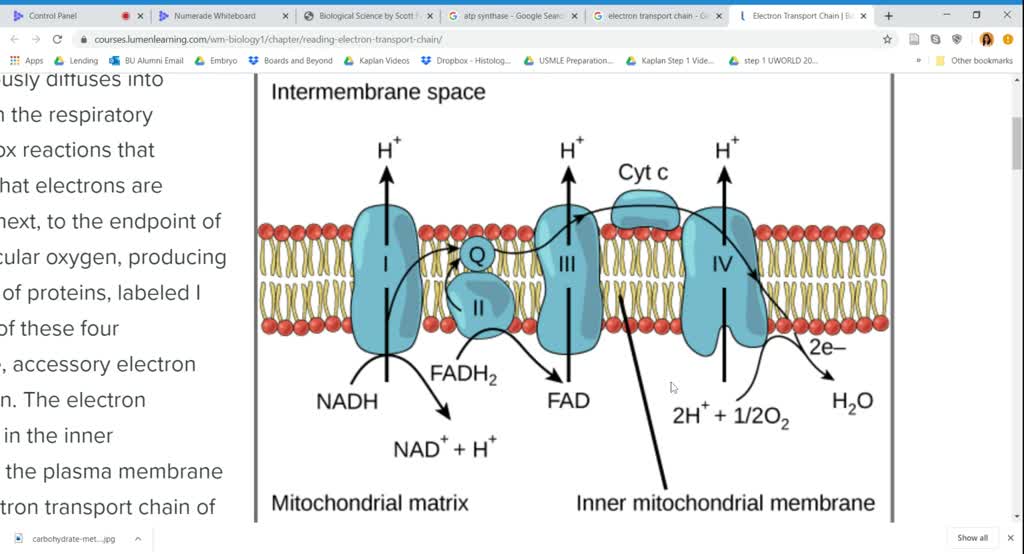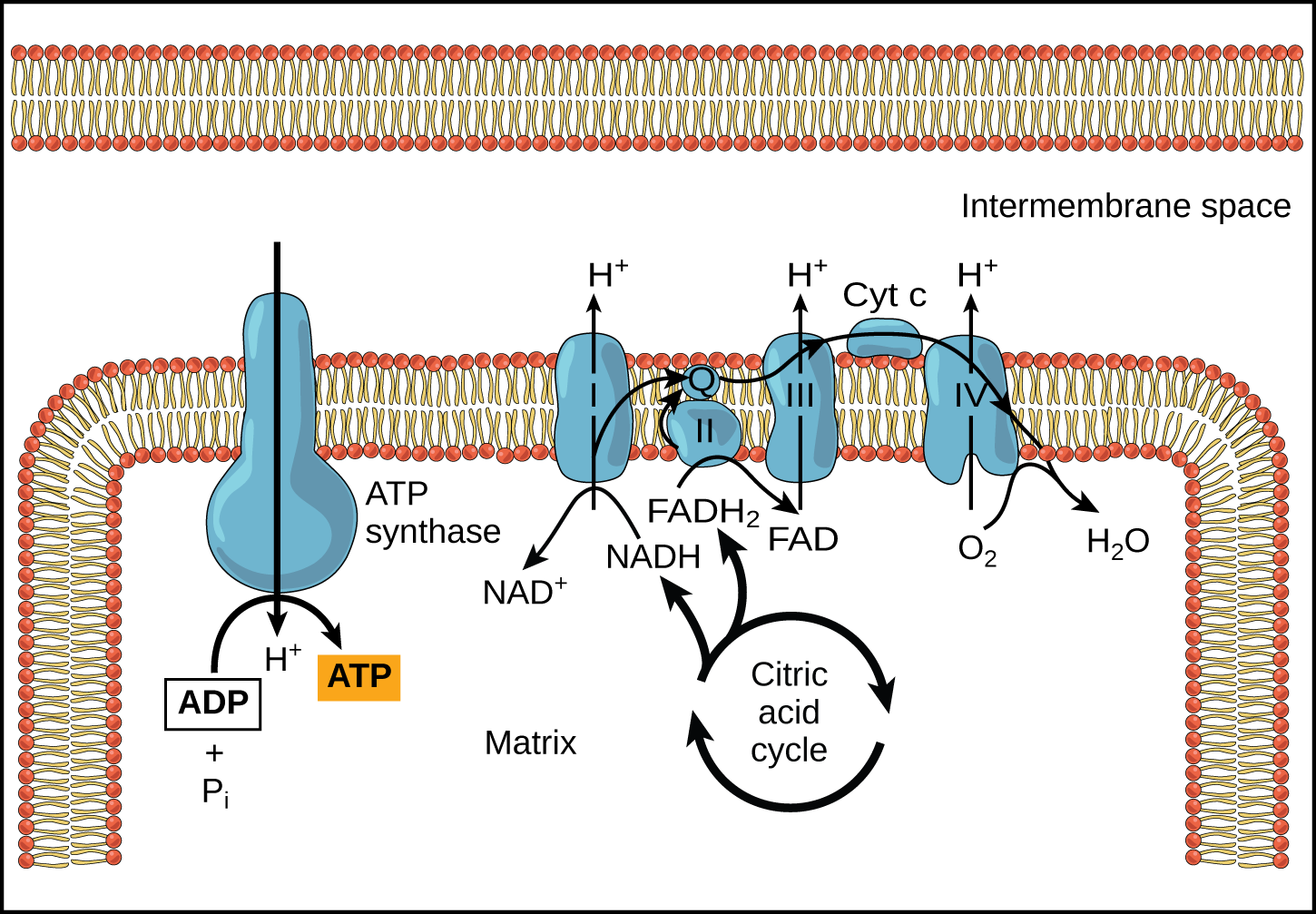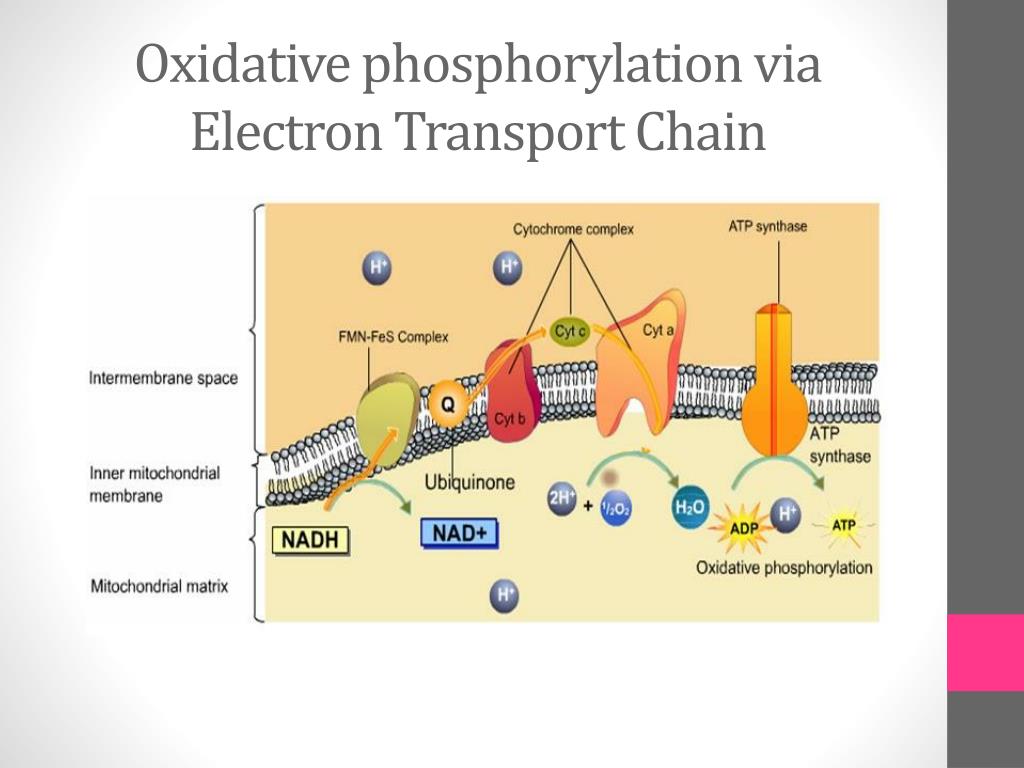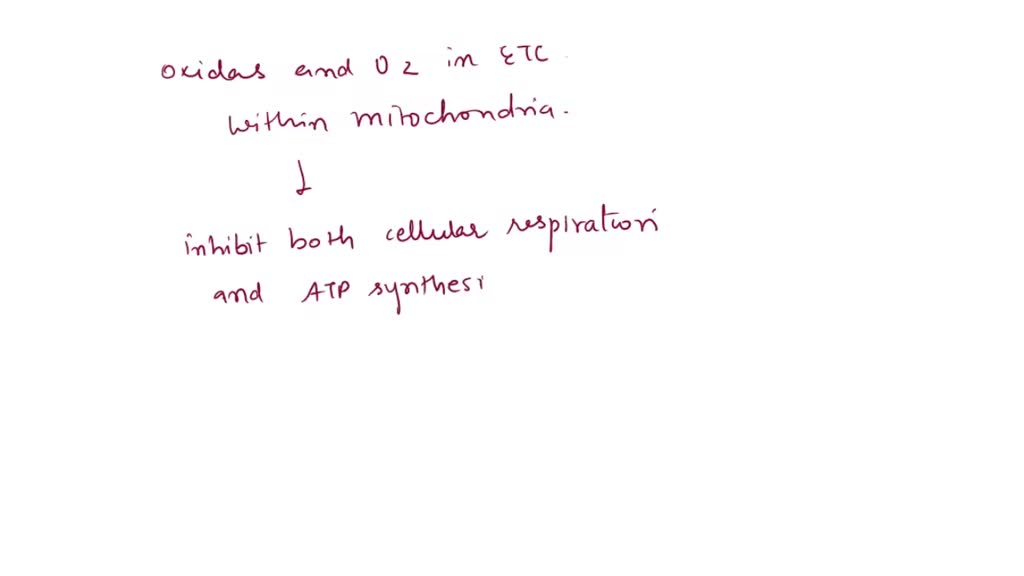What Effect Would Cyanide Have On The Electron Transport Chain
What Effect Would Cyanide Have On The Electron Transport Chain - If cyanide poisoning occurs, would the ph of the. Once it is reduced, (qh 2), ubiquinone delivers its electrons to the next complex in the electron transport chain. Cyanide disrupts the electron transport chain in mitochondria by binding to cytochrome oxidase, preventing the mitochondria from using oxygen. Cyanide inhibits the electron transport chain by binding to one of its components, cytochrome c oxidase (also known as complex iv). Cyanide inhibits cyochrome c oxidase, a component of the electron transport chain;
If cyanide poisoning occurs, would the ph of the. Once it is reduced, (qh 2), ubiquinone delivers its electrons to the next complex in the electron transport chain. Cyanide inhibits the electron transport chain by binding to one of its components, cytochrome c oxidase (also known as complex iv). Cyanide inhibits cyochrome c oxidase, a component of the electron transport chain; Cyanide disrupts the electron transport chain in mitochondria by binding to cytochrome oxidase, preventing the mitochondria from using oxygen.
Cyanide disrupts the electron transport chain in mitochondria by binding to cytochrome oxidase, preventing the mitochondria from using oxygen. Once it is reduced, (qh 2), ubiquinone delivers its electrons to the next complex in the electron transport chain. If cyanide poisoning occurs, would the ph of the. Cyanide inhibits the electron transport chain by binding to one of its components, cytochrome c oxidase (also known as complex iv). Cyanide inhibits cyochrome c oxidase, a component of the electron transport chain;
Cyanide's Effects on Cellular Respiration
Cyanide inhibits cyochrome c oxidase, a component of the electron transport chain; Once it is reduced, (qh 2), ubiquinone delivers its electrons to the next complex in the electron transport chain. Cyanide disrupts the electron transport chain in mitochondria by binding to cytochrome oxidase, preventing the mitochondria from using oxygen. If cyanide poisoning occurs, would the ph of the. Cyanide.
Cyanide poisoning. No quintessentially british James bond… by Kinjal
Cyanide inhibits cyochrome c oxidase, a component of the electron transport chain; If cyanide poisoning occurs, would the ph of the. Cyanide disrupts the electron transport chain in mitochondria by binding to cytochrome oxidase, preventing the mitochondria from using oxygen. Once it is reduced, (qh 2), ubiquinone delivers its electrons to the next complex in the electron transport chain. Cyanide.
As shown in Figure 7 11, cyanide inhibits the electron transport chain
Cyanide disrupts the electron transport chain in mitochondria by binding to cytochrome oxidase, preventing the mitochondria from using oxygen. Once it is reduced, (qh 2), ubiquinone delivers its electrons to the next complex in the electron transport chain. Cyanide inhibits the electron transport chain by binding to one of its components, cytochrome c oxidase (also known as complex iv). Cyanide.
Figure 4.15 Cyanide inhibits cytochrome c oxidase, a component of the
Cyanide inhibits cyochrome c oxidase, a component of the electron transport chain; Once it is reduced, (qh 2), ubiquinone delivers its electrons to the next complex in the electron transport chain. Cyanide disrupts the electron transport chain in mitochondria by binding to cytochrome oxidase, preventing the mitochondria from using oxygen. If cyanide poisoning occurs, would the ph of the. Cyanide.
Cyanide (C=N^) blocks complex IV of the electron transport chain
Cyanide inhibits cyochrome c oxidase, a component of the electron transport chain; If cyanide poisoning occurs, would the ph of the. Cyanide inhibits the electron transport chain by binding to one of its components, cytochrome c oxidase (also known as complex iv). Cyanide disrupts the electron transport chain in mitochondria by binding to cytochrome oxidase, preventing the mitochondria from using.
Electron Transport Chain Steps
If cyanide poisoning occurs, would the ph of the. Cyanide inhibits the electron transport chain by binding to one of its components, cytochrome c oxidase (also known as complex iv). Cyanide disrupts the electron transport chain in mitochondria by binding to cytochrome oxidase, preventing the mitochondria from using oxygen. Cyanide inhibits cyochrome c oxidase, a component of the electron transport.
16.4 Oxidative Phosphorylation Biology 110 PSU Dubois
Once it is reduced, (qh 2), ubiquinone delivers its electrons to the next complex in the electron transport chain. Cyanide inhibits cyochrome c oxidase, a component of the electron transport chain; Cyanide disrupts the electron transport chain in mitochondria by binding to cytochrome oxidase, preventing the mitochondria from using oxygen. If cyanide poisoning occurs, would the ph of the. Cyanide.
Emergency Medicine EducationEM3AM Cyanide Toxicity
Cyanide inhibits the electron transport chain by binding to one of its components, cytochrome c oxidase (also known as complex iv). Cyanide disrupts the electron transport chain in mitochondria by binding to cytochrome oxidase, preventing the mitochondria from using oxygen. Once it is reduced, (qh 2), ubiquinone delivers its electrons to the next complex in the electron transport chain. Cyanide.
PPT Effect of Cyanide on ATP S ynthesis PowerPoint Presentation, free
Cyanide disrupts the electron transport chain in mitochondria by binding to cytochrome oxidase, preventing the mitochondria from using oxygen. Cyanide inhibits the electron transport chain by binding to one of its components, cytochrome c oxidase (also known as complex iv). If cyanide poisoning occurs, would the ph of the. Cyanide inhibits cyochrome c oxidase, a component of the electron transport.
SOLVED The poison cyanide prevents the last protein in the electron
Once it is reduced, (qh 2), ubiquinone delivers its electrons to the next complex in the electron transport chain. Cyanide inhibits the electron transport chain by binding to one of its components, cytochrome c oxidase (also known as complex iv). If cyanide poisoning occurs, would the ph of the. Cyanide inhibits cyochrome c oxidase, a component of the electron transport.
Once It Is Reduced, (Qh 2), Ubiquinone Delivers Its Electrons To The Next Complex In The Electron Transport Chain.
If cyanide poisoning occurs, would the ph of the. Cyanide inhibits cyochrome c oxidase, a component of the electron transport chain; Cyanide disrupts the electron transport chain in mitochondria by binding to cytochrome oxidase, preventing the mitochondria from using oxygen. Cyanide inhibits the electron transport chain by binding to one of its components, cytochrome c oxidase (also known as complex iv).
